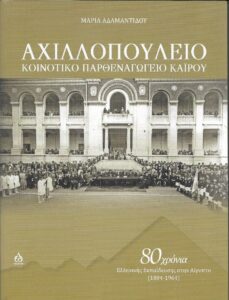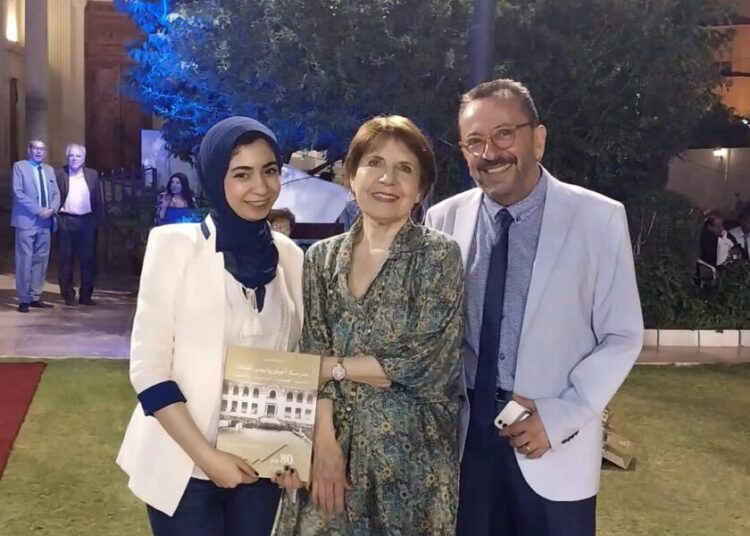The Greek Campus was well known, even before it became part of the American University in Cairo (AUC) in 1964.
Before that date, the campus was the Achillopouleion Girls School in Cairo, which was established in 1884.
After buying it, the AUC was keen to preserve the identity of the campus for progeny.
Now, one of the school’s pupils tries to keep its memory alive.
She has done this by writing ” ACHILLOPOULEION GIRLS SCHOOL” book about it.
This pupil is Maria Adamantidis who is now a brilliant author.
She said as a Greek girl growing up away from her homeland she has realised that the school was more than just a centre of learning.
“It connected us [Greek children] with our identity, having grown up away from Greece,” Adamantidis told The Egyptian Gazette.
The Achillopouleion School taught pupils like Adamantidis values and rules. It also educated them about their Christian religion.
Among many other things, her book focuses on how the school was instrumental in also connecting Greek pupils with Egyptian culture.
The school administration did this by organizing trips to historical sites in different Egyptian cities, especially Alexandria and Luxor, she says in the book.
The school administration also organized tours inside different Egyptian museums.
Adamantidis’ book is divided into three sections, including a historical one where she speaks about Achillopouleion School since its opening; its heyday; its eclipse, and then its subsequent sale to the AUC.
“The memories of the school still live in my mind, but this is about time these memories were put together in one book so that they keep living and get known to other people,” Adamantidis said.

The second part of the book contains about 150 different photos of life in the school and the activities carried out in it over the years.
Adamantidis uses captions under the photos to explain their contents.
The third section of the book contains school enrolment figures over the years, including the number of pupils who were given free education.
“The school always supported its pupils,” she said.
Adamantidis still remembers that the school administration absolved poor pupils of study fees.
“Only financially-capable pupils were charged,” she said.
Nevertheless, the school saw financing to it by the Greek government go down, with Greece undergoing economic hardships.
Athens tried to keep the school going, but this was far harder than anybody thought at the time.
This was why the school was sold to the AUC which was expanding and badly in need of additional space.
Adamantidis’ book is in Greek, but Egyptian translator Somel Beshara translated it into Arabic.
The Arabic and the Greek editions of the book are sponsored by Catherine Belefanti Sofianou, a Greek businesswoman and a graduate of Achillopouleion School, according to Christos Papadopoulos, director of the Greek Cultural Centre in Cairo.
“It was very important to publish the book in Arabic so that it can be accessible for Arab readers,” Adamantidis said.
“It is an expression of the peaceful cohabitation of Egyptians and Greeks in Egypt, the welcoming country,” she added.






Discussion about this post